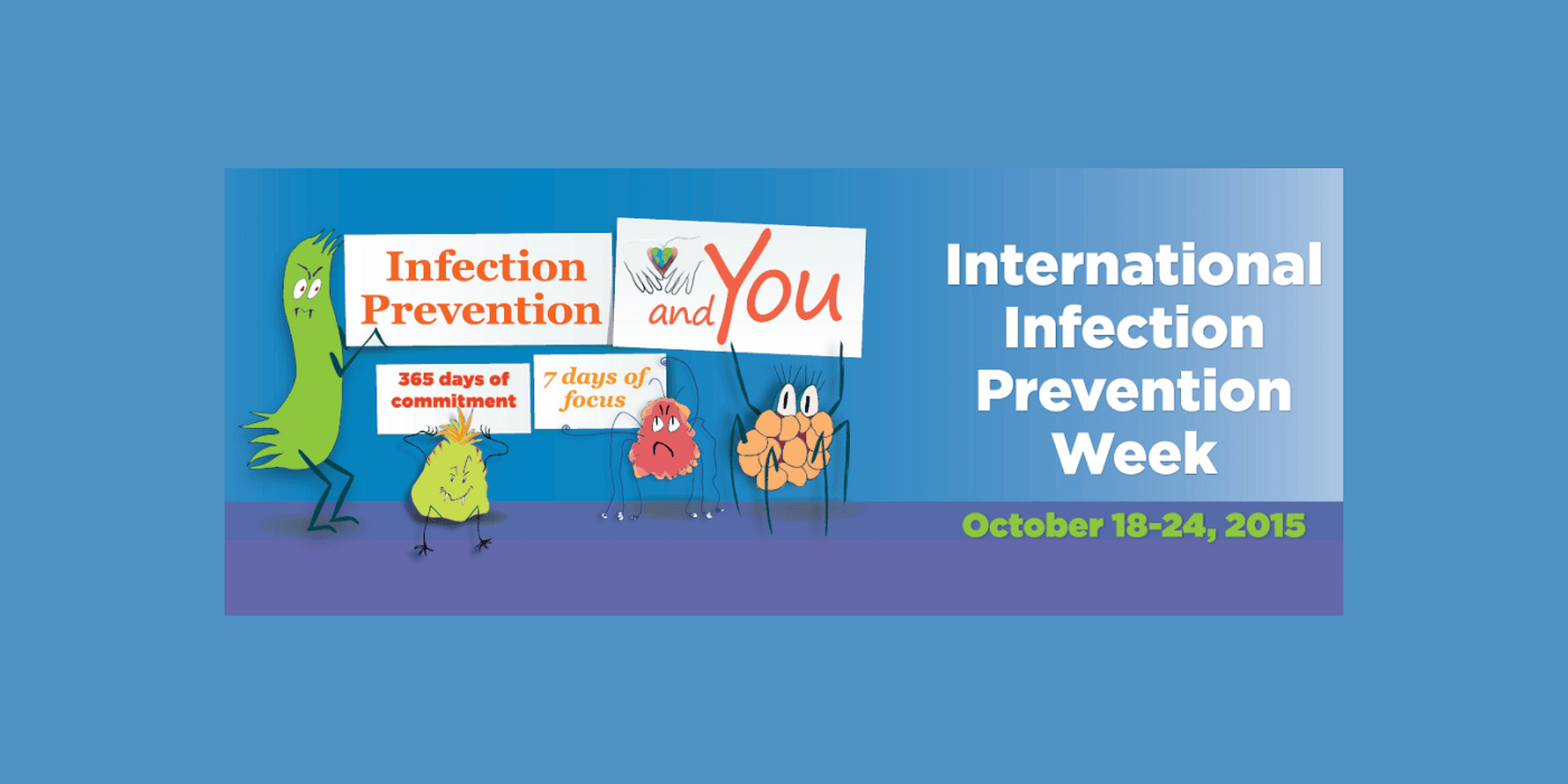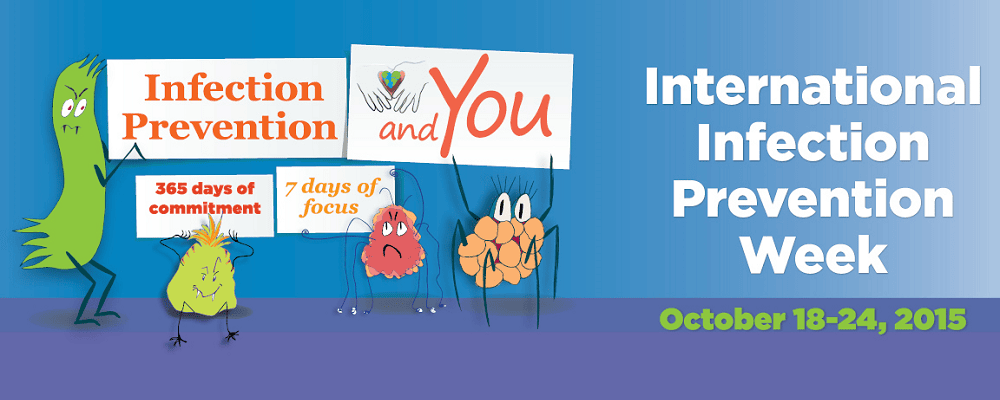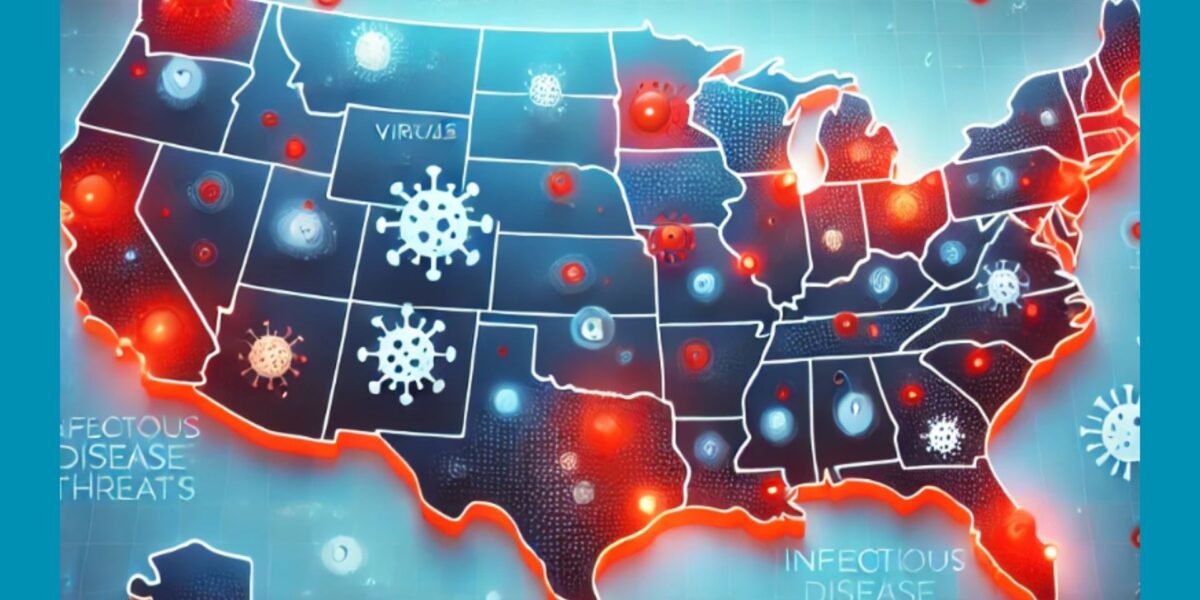
 Special thanks to APIC and Crystal Heishman, MSN, RN, CIC, ONC, Infection Preventionist at University of Louisville Hospital, for this guest blog post on effective techniques to prevent influenza infection in children.
Special thanks to APIC and Crystal Heishman, MSN, RN, CIC, ONC, Infection Preventionist at University of Louisville Hospital, for this guest blog post on effective techniques to prevent influenza infection in children.
October is here and students are now midway into the first semester at school. October also means that cold and flu season are here and the 2015 International Infection Prevention Week (#IIPW) is a great time to remind everyone about the importance of preventing the spread of infections, such as influenza, in schools.
According to the Centers for Disease Control and Prevention (CDC), every year in the US, an average of 20,000 children younger than 5 years are hospitalized because of flu-related complications.
An annual flu vaccine is recommended for everyone six months of age and older and is the best way to protect yourself and your children from flu. When you get vaccinated, you are not only protecting yourself but you are also protecting others who cannot get vaccinated because they are too young or have a compromised immune system.
In addition to getting an annual flu vaccine, there are other healthy habits that can help prevent the spread of flu and other germs this season:
1. Wash your hands frequently. Keeping your hands clean is the best way to stop the spread of germs. Wash your hands regularly with soap and water or use alcohol-based hand sanitizer to prevent the spread of germs. Healthy habits develop early, so it’s important to teach children proper hand hygiene and reinforce them as they grow up. Watch the Happy Handwashing video below and make hand washing fun!
2. Clean high-touch surfaces. Children love to explore, and they tend to touch everything. Help keep them, and yourself, safe by cleaning high-touch surfaces—including doorknobs, remote controls, cell phones, desks, and keyboards—at least once a day.
 3. Cough and sneeze into a tissue or your elbow. Cover your nose and mouth with a tissue when you cough or sneeze and then throw it out. Discourage children from coughing into their hands and/or using their sleeves and hands to wipe away sneezes. If you do not have a tissue, cough or sneeze into your elbow. And don’t forget to wash your hands after you cough or sneeze.
3. Cough and sneeze into a tissue or your elbow. Cover your nose and mouth with a tissue when you cough or sneeze and then throw it out. Discourage children from coughing into their hands and/or using their sleeves and hands to wipe away sneezes. If you do not have a tissue, cough or sneeze into your elbow. And don’t forget to wash your hands after you cough or sneeze.
4. Stay at home. People tend to “push through” the day even when they are feeling ill and spread germs to others. When you are ill, stay home and rest. If your child is showing symptoms of flu keep them home to prevent the spread of germs. CDC recommends that everyone stay home for at least 24 hours after a fever is gone without the use of fever-reducing medicines.
5. Know that antibiotics don’t cure the flu. If you or your child has the flu, it is important to remember that antibiotics do not treat the flu (or most colds). Antibiotics only work for bacterial infections, and flu is caused by viruses, not bacteria. There are prescription medications available called antiviral drugs that may be used effectively to treat flu. If you or your child become ill with flu-like symptoms, contact your healthcare provider as soon as possible and take antiviral medications if prescribed.
Parents can learn more about about Keeping Flu Out of School at: www.preventchildhoodinfluenza.org/school and in The Flu: A Guide for Parents. For more information on infection prevention basics and infection prevention in different community settings, visit Infection Prevention and You.
To join the conversation, follow us on Twitter (@nfidvaccines) using the hashtag #FightFlu and #KFOS, like us on Facebook, join the NFID Linkedin Group, and subscribe to NFID Updates.
Related Posts

News Round-Up: Infectious Disease Threats
According to NFID website poll, there are several worrisome infectious disease threats. Read recent news on topics of greatest concern, including avian influenza (bird flu), measles, and respiratory syncytial virus (RSV) …

Vaccines and Heart Health: A Vital Connection
Heart disease can increase the risk of serious or fatal complications from respiratory diseases including COVID-19, flu, and RSV

Harnessing the Power of Local Data
NFID dashboard aims to empower stakeholders with hyperlocal data to increase US adult respiratory vaccine uptake
